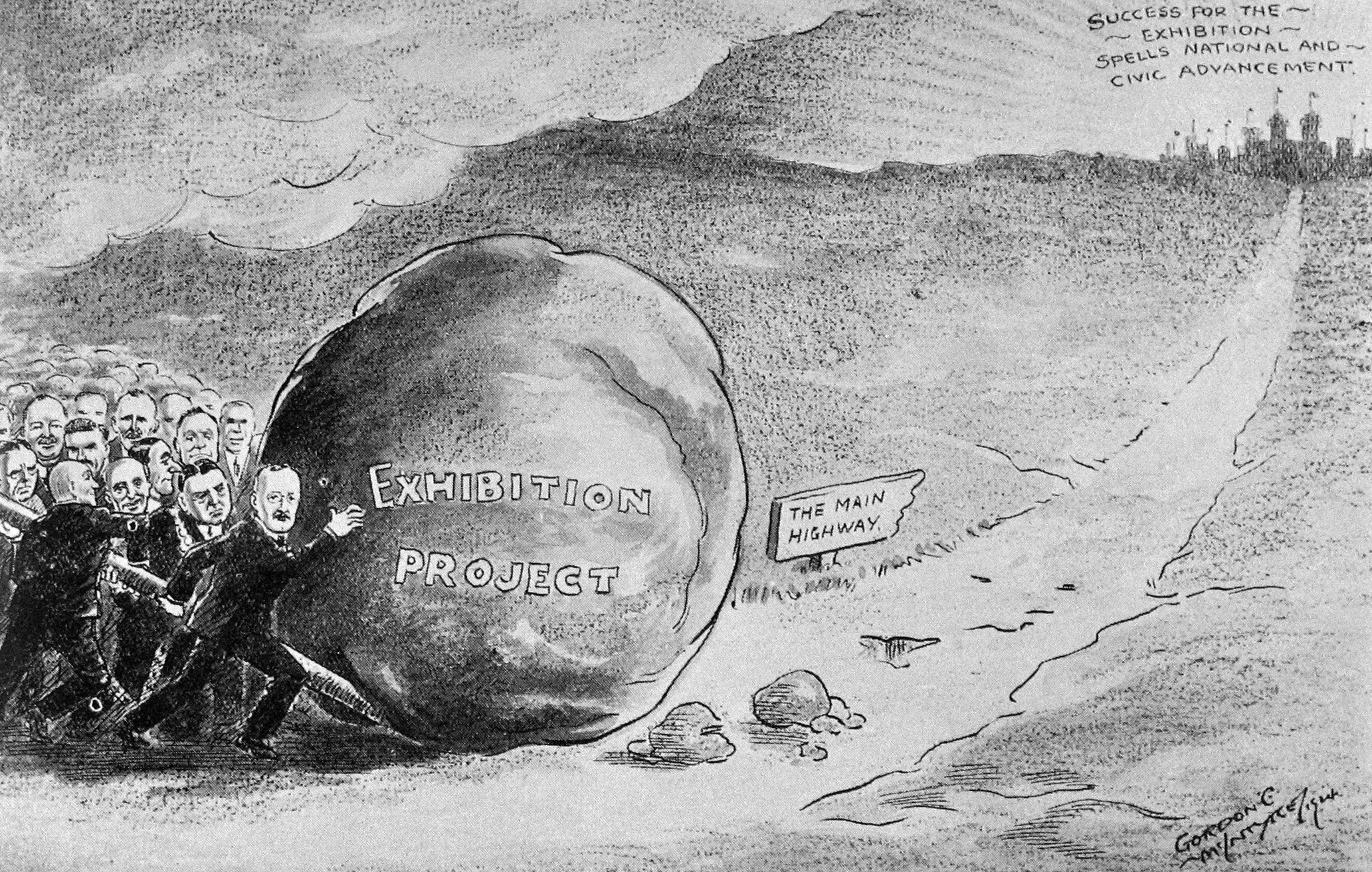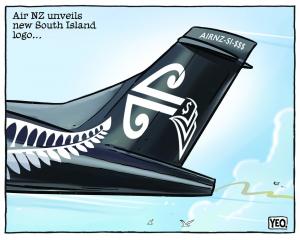
Supplies of timber are coming to hand regularly, and practically all the necessary machinery has been installed except two four-sided planing machines, which are due to arrive next week.

About 170 men are employed by the contractors at present. The foundations of the last building provided for under the original contract are now being laid down. This is No 6 building, the dimensions of which will be 360 feet by 310ft or twice the size of No 3 building. No 6 building will be devoted to the display of New Zealand industries. Tenders closed yesterday for the erection of the concert hall.
The heavy rain at the end of last week interfered with work on Saturday, but it did no damage to the grounds, the drainage and protective measures undertaken under the supervision of Mr Anscombe proving quite effective. The walls of five out of the seven buildings are up, and the roof structures of two are in position.
Cenotaph cladding option
It has been decided by the Dunedin War Memorial Committee to call for alternative tenders in Kokonga stone and in Nelson marble, similar to that used in the Parliamentary Buildings, Wellington, as an outer skin with which to face the column. The construction of the body of the column will not be affected. It was decided from the beginning that it would be a hollow tube of reinforced concrete, and that decision will be adhered to whatever form the facing may take.
The reason for alternative tenders being obtained it that Kokonga stone is dull, and probably would not show up so well at night time as marble with the light falling upon it from above.
A light will be kept burning unceasingly at the summit of the column. Mr J.L. Salmond, of this city, has been authorised to represent the Auckland architect, Mr Glimmer, in regard to the work.
A ‘dry’ promise to Māori
A resolution bearing on the introduction of liquor into the King Country was unanimously carried at the Hanover Street Baptist Church on Sunday evening. The resolution read: "This congregation makes the most emphatic protest possible against any legislation which would contravene the promise made to the Maori people that liquor licenses would never be granted in the King Country, and most earnestly appeals to Parliament to protect the Maoris by continuing the prohibition of the liquor traffic in their territory." The Rev R.H. Knowles Kempton, in proposing the motion, said it would be a reproach to the dominion if it failed to keep its pledged word.
Port Chalmers doubles down
The Government’s proposal to stop the duplication of the Dunedin-Port Chalmers railway at Ravensbourne is resented at Port Chalmers. The Mayor (Mr J. Watson) has despatched a telegram to the Minister of Railways regretting the decision to terminate the duplication, and urging that the matter be re-considered and the duplication completed to Port Chalmers.
The President of the Port Chalmers Progressive League (Mr J.Y. Love) has sent a similar telegram to the Minister of Railways but, in addition, he has telegraphed to the Prime Minister, the Leader of the Opposition and the Leader of the Labour Party.
Both the Borough Council and the Progressive League had previously written to Mr J. M. Hickson MP.
— ODT, 7.10.1924 (Compiled by Peter Dowden)













